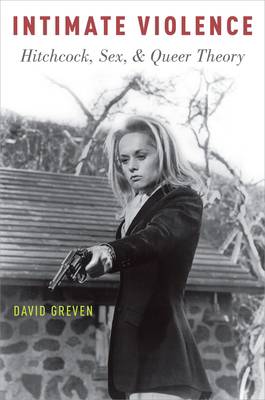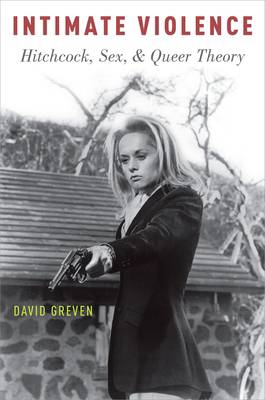
Bedankt voor het vertrouwen het afgelopen jaar! Om jou te bedanken bieden we GRATIS verzending (in België) aan op alles gedurende de hele maand januari.
- Afhalen na 1 uur in een winkel met voorraad
- In januari gratis thuislevering in België
- Ruim aanbod met 7 miljoen producten
Bedankt voor het vertrouwen het afgelopen jaar! Om jou te bedanken bieden we GRATIS verzending (in België) aan op alles gedurende de hele maand januari.
- Afhalen na 1 uur in een winkel met voorraad
- In januari gratis thuislevering in België
- Ruim aanbod met 7 miljoen producten
Zoeken
€ 82,45
+ 164 punten
Omschrijving
Intimate Violence explores the consistent cold war in Hitchcock's films between his heterosexual heroines and his queer characters, usually though not always male. Decentering the authority of the male hero, Hitchcock's films allow his female and queer characters to vie for narrative power, often in conflict with one another. These conflicts eerily echo the tense standoff between feminism and queer theory. From a reparative psychoanalytic perspective, David Greven merges queer and feminist approaches to Hitchcock. Using the theories of Melanie Klein, Greven argues that Hitchcock's work thematizes a constant battle between desires to injure and to repair the loved object. Greven develops a theory of sexual hegemony. The feminine versus the queer conflict, as he calls it, in Hitchcock films illuminates the shared but rivalrous struggles for autonomy and visibility on the part of female and queer subjects. The heroine is vulnerable to misogyny, but she often gains an access to agency that the queer subject longs for, mistaking her partial autonomy for social power. Hitchcock's queer personae, however, wield a seductive power over his heterosexual subjects, having access to illusion and masquerade that the knowledge-seeking heroine must destroy. Freud's theory of paranoia, understood as a tool for the dissection of cultural homophobia, illuminates the feminine versus the queer conflict, the female subject position, and the consistent forms of homoerotic antagonism in the Hitchcock film. Through close readings of such key Hitchcock works as North by Northwest, Psycho, Strangers on a Train, Spellbound, Rope, Marnie, and The Birds, Greven explores the ongoing conflicts between the heroine and queer subjects and the simultaneous allure and horror of same-sex relationships in the director's films.
Specificaties
Betrokkenen
- Auteur(s):
- Uitgeverij:
Inhoud
- Aantal bladzijden:
- 296
- Taal:
- Engels
Eigenschappen
- Productcode (EAN):
- 9780190214173
- Verschijningsdatum:
- 13/03/2017
- Uitvoering:
- Paperback
- Formaat:
- Trade paperback (VS)
- Afmetingen:
- 155 mm x 231 mm
- Gewicht:
- 498 g

Alleen bij Standaard Boekhandel
+ 164 punten op je klantenkaart van Standaard Boekhandel
Beoordelingen
We publiceren alleen reviews die voldoen aan de voorwaarden voor reviews. Bekijk onze voorwaarden voor reviews.









